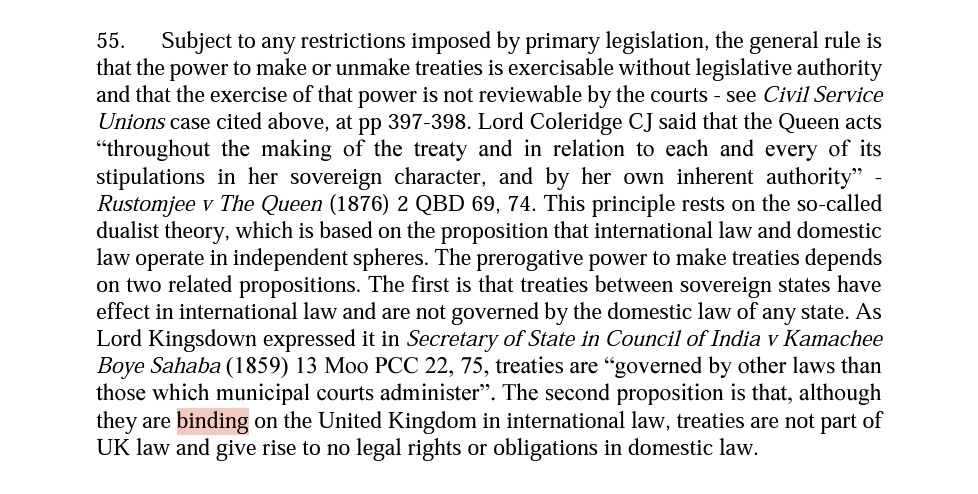
The suggestion to denounce the ECHR, if carried out, would mean that the EU ends criminal justice cooperation with the UK under the Brexit deal 1/
https://twitter.com/stand_for_all/status/1450349379672551426
2/ Here's the EU commitment to this end, as part of my recent thread on human rights and the Brexit deal
https://twitter.com/StevePeers/status/1445456792478126088?t=8vEVkhkY4Ofzh0z2Vm7AuA&s=19
3/ As for the "common law is world beating at protecting human rights" view, here's the classic debunk by @conorgearty
ukconstitutionallaw.org/2014/11/13/con…

ukconstitutionallaw.org/2014/11/13/con…


4/ Also, correct to point out the GFA dimension to denouncing the ECHR. Some referendums are more sacred than others
https://twitter.com/NoHostages00/status/1450357951307337731?t=zeoB2SXuClqYslfRrCFcLw&s=19
5/ The context: the failure of the common law to prevent miscarriages of justice as regards Irish people in particular (from @conorgearty again). If death penalty advocates had their way, these men would not only have been wrongfully convicted, but also murdered by the state. 

The "purest form of liberty in the world", folks
https://twitter.com/timoconnorbl/status/1450364952519249920?t=dQW13qE1sLFl82f6kLl-eA&s=19
The Council of Europe statute provides for suspension and possibly termination of membership for members who have "seriously violated" the rule of law or human rights - whether that would be considered the case due to denouncing ECHR remains to be seen
https://twitter.com/heidavey/status/1450371732829790209?s=20
• • •
Missing some Tweet in this thread? You can try to
force a refresh






